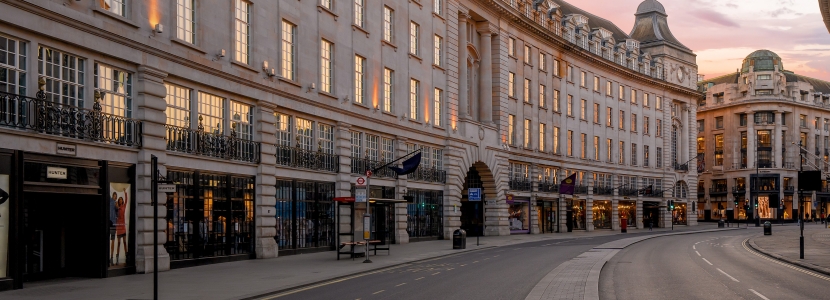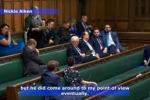
The follow originally appeared in the Times as an article for Red Box.
Today I’m bringing together major office employers from the City and West End to look at how we bring workers back to offices as safely and as soon as possible — reviving the central London economy as a result.
If we want the country’s economy to recover from coronavirus, we need central London to lead the way. It’s good to see Lloyd’s of London reopening this week, at 45 per cent capacity and with strict safety procedures in place. It’s a positive shot in the arm for the City. More broadly, however, the West End and the City are suffering, and a big part of this is down to a lack of office workers. Some 600,000 people commuted to Westminster alone every day before the lockdown and we need them back this year if we are to save the central London ecosystem — the thousands of pubs, independent coffee shops and sandwich bars, theatres and retailers — that rely on them.
The business organisation New West End Company predicts a 70 to 80 per cent fall in annual turnover of West End shops and hospitality, expected to result in 50,000 job losses (around a third of West End retail jobs in total) by 2020. The knock-on effect for the hospitality and cultural sectors would be devastating.
We must work urgently to give people the confidence to travel to work, and make it easy for them, even if just for part of the week. I would like TfL, commuter rail operators and the Mayor of London to seriously consider the following three-point plan.
First, I would like TfL and the train companies to investigate regular swabbing of our tubes, trains and buses for Covid-19. Regular random testing of our seats, handrails and doors will give people the confidence that travelling on our public transport is safe. If coronavirus is detected anywhere we can respond quickly with measures such as closing and deep cleaning the immediate area in question. Swab testing has already taken place on the New York transit system and will go a long way in giving passengers the confidence that their commute to and from work is safe.
Next, station staff should temperature-check passengers as they enter our tube and overground stations or at ticket barriers. It’s already happening in many of our shops and gyms across the country, and it takes a couple of seconds — well worth it if it gives people a bit more reassurance about travelling on public transport. There will obviously be logistical issues around taking the temperature of a million plus commuters, but even random testing at key stations could offer confidence and comfort to concerned travellers
Finally, while we are encouraging people to use public transport, cycle and walk where they can, the mayor should temporarily remove the congestion charge at evenings and weekends and undertake a proper study to understand present traffic flow into the capital. The congestion charge has been a vital tool in improving our air quality, and we must never neglect this important task. However, the £15-a-day seven-days-a-week charge is hurting our small independent businesses and large employers alike at a time when many of them are fighting to recover from the lockdown and struggling to survive. It has simply become a tax on economic recovery and is likely to cost thousands of job losses.
Our tradesmen, pubs, cafes and shops are forking out £100 every week just to be able to get to work and make a living. A Covent Garden weekend stallholder recently told me that she now has an extra £1,500 a year extra costs to her already tight margins. The charge is a barrier for visitors and shoppers coming into London to support our businesses at this challenging time. Removing it at evenings and weekends even in the short term will encourage more people to come into the centre of London to visit, shop and work. It will give our businesses a chance to get back on their feet and survive.
I look forward to sitting down with major employers in central London today and working out what more we can all do practically to encourage people back to work. Meanwhile I hope TfL, the train operators and the mayor of London consider these measures with urgency. We must work together to rescue our economy, and central London must bounce back quickly for it to happen.





